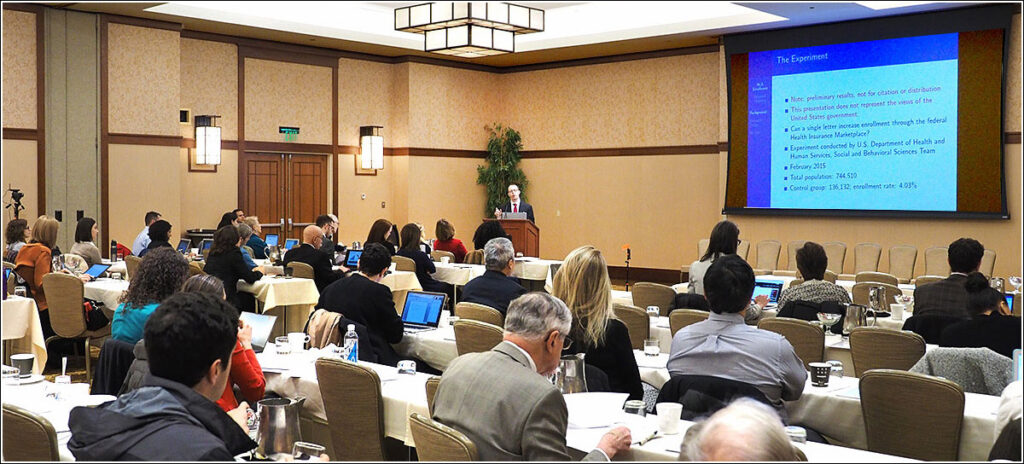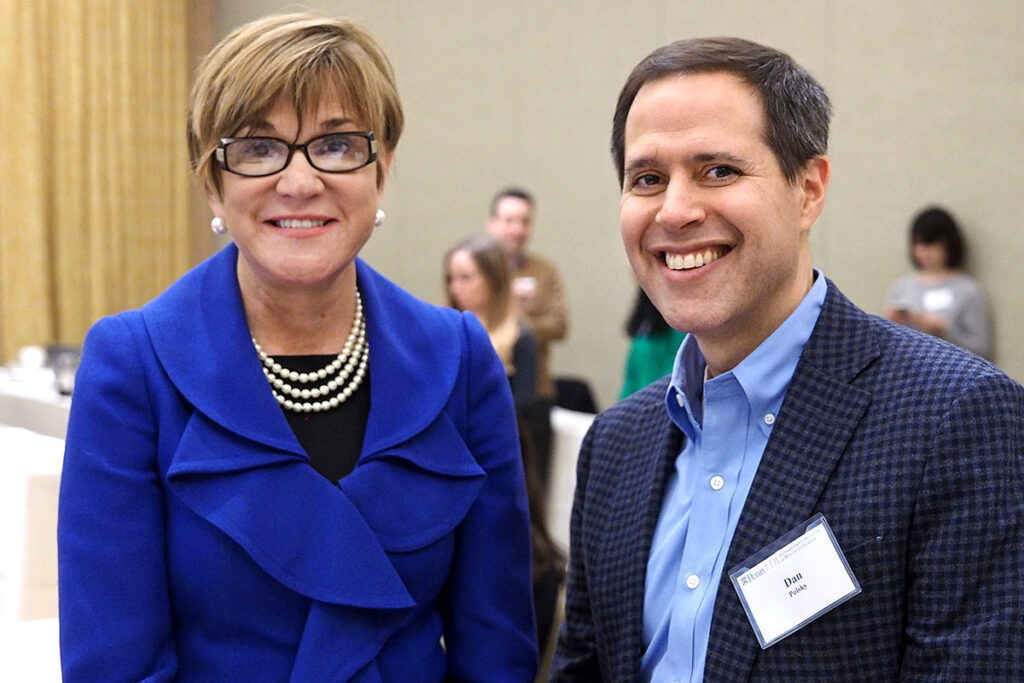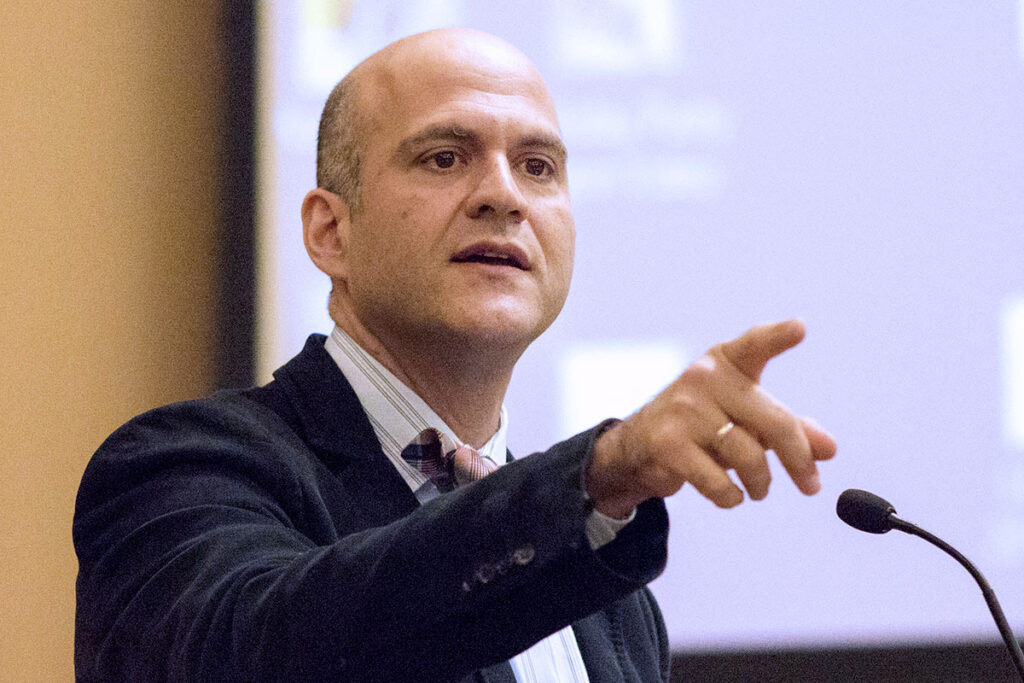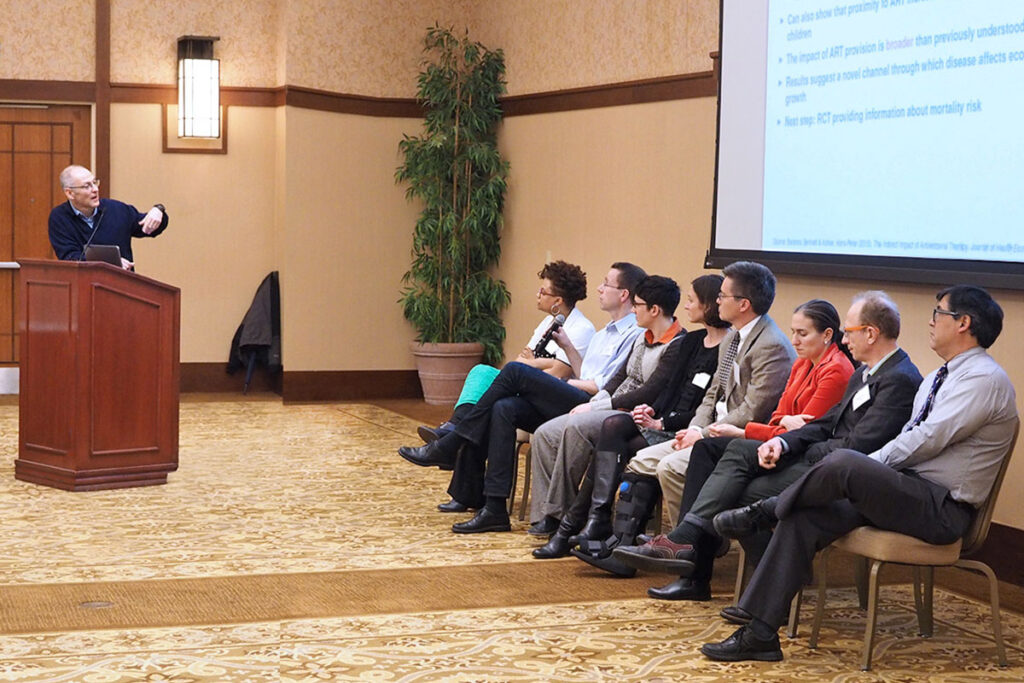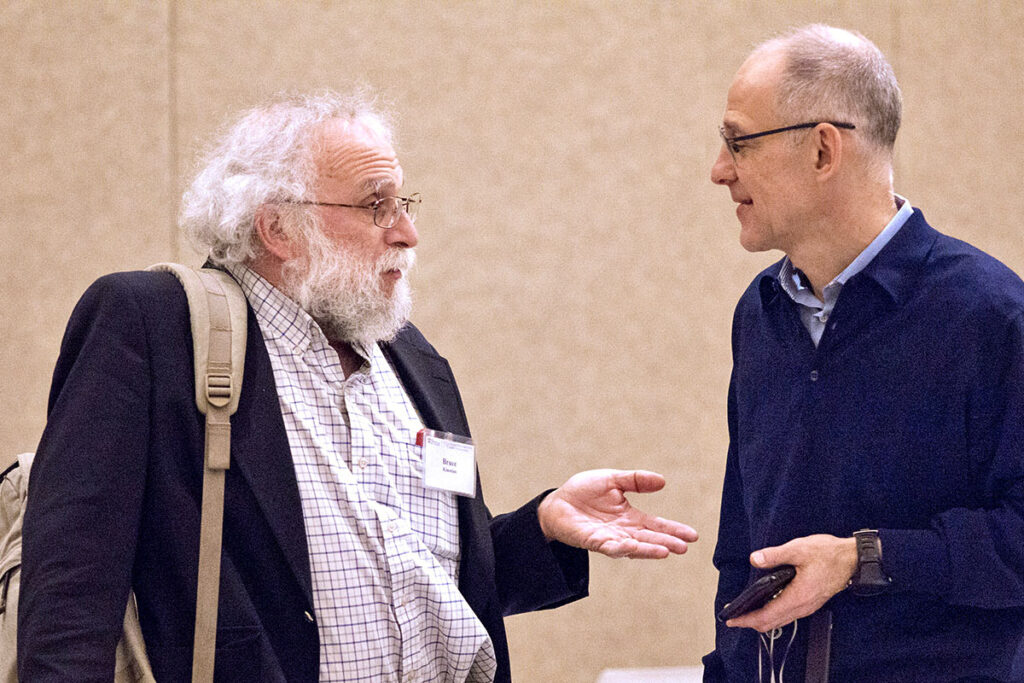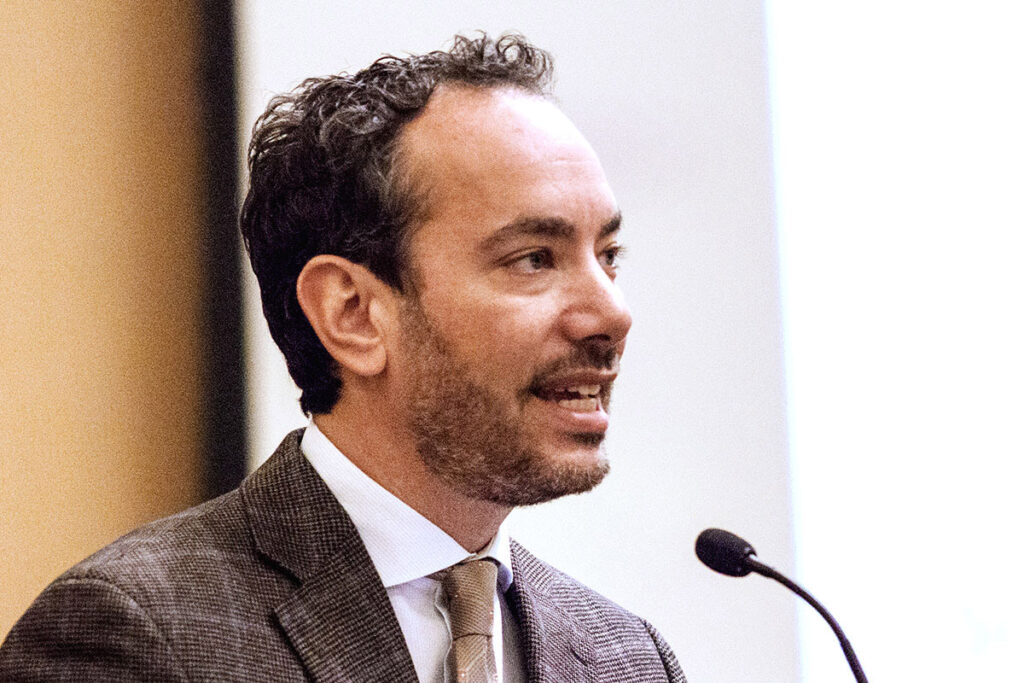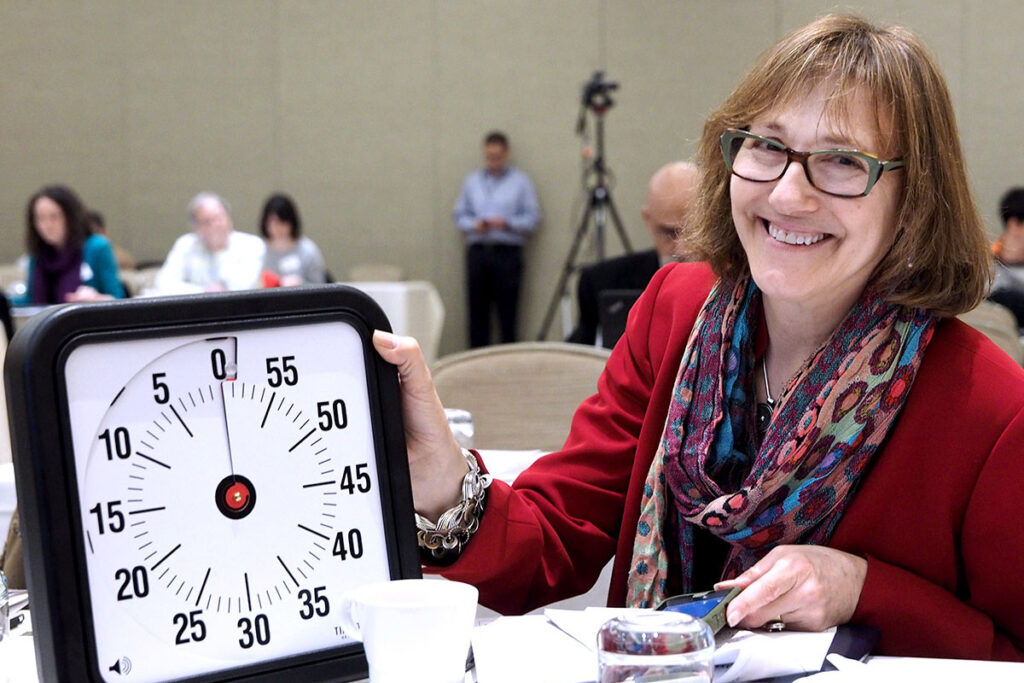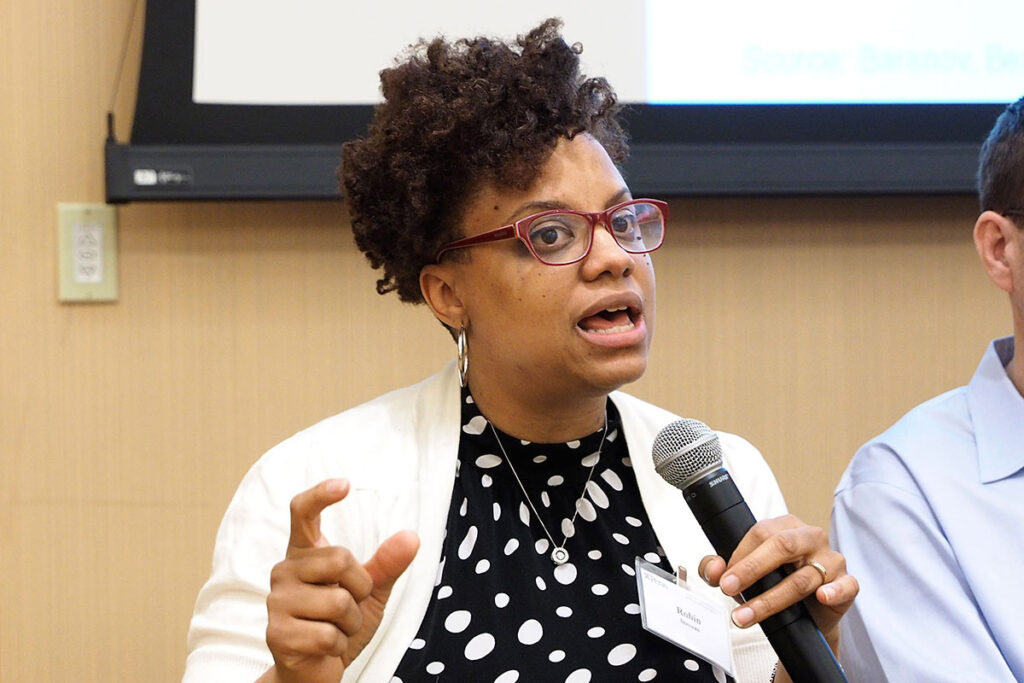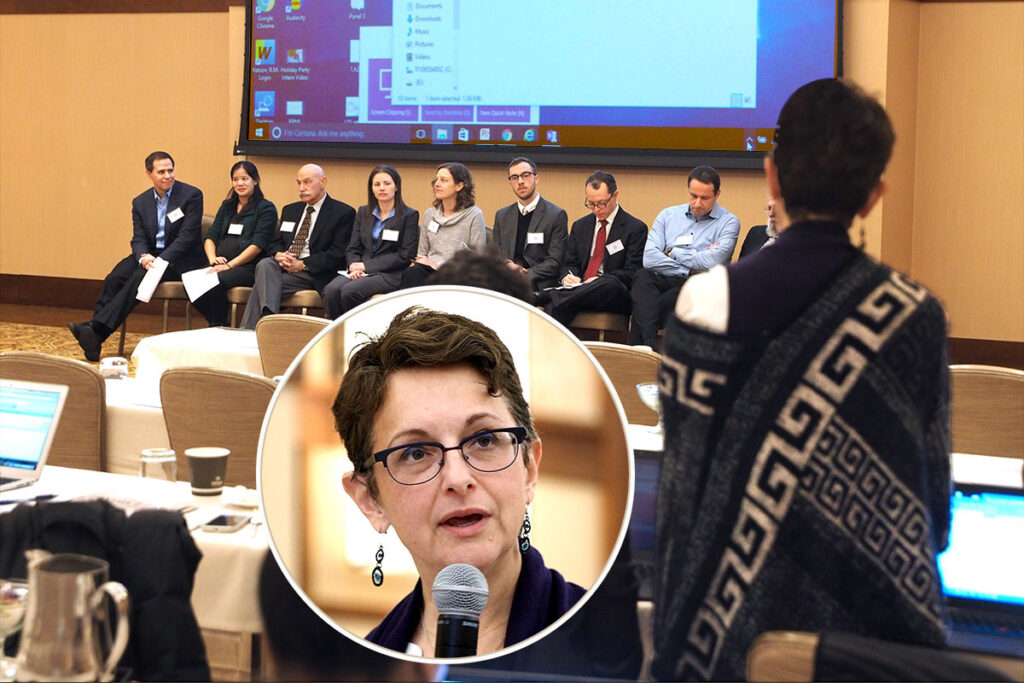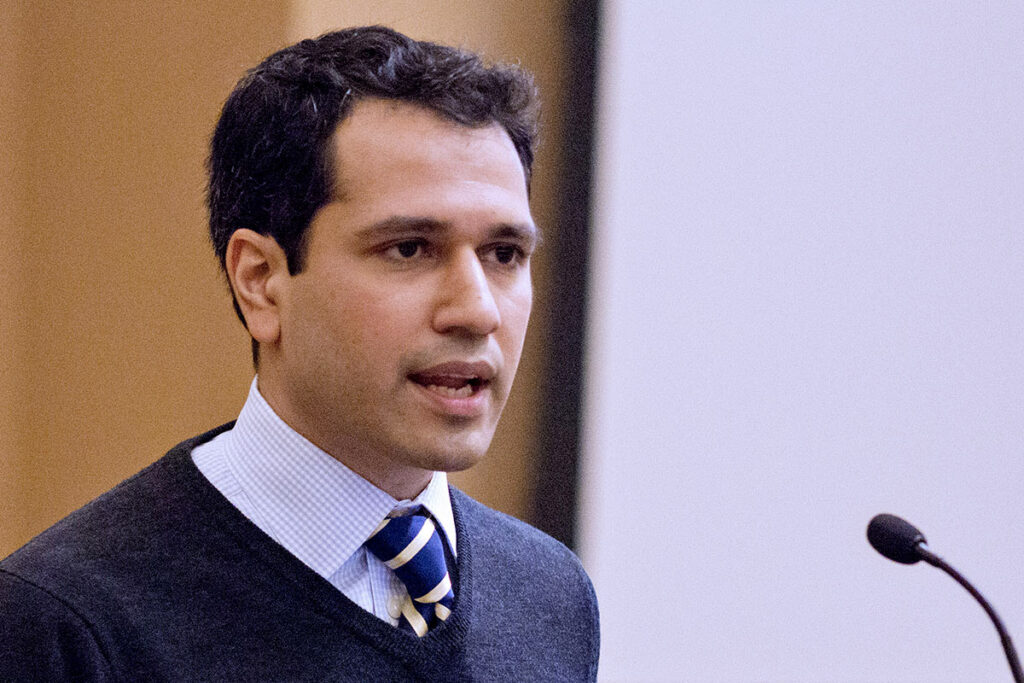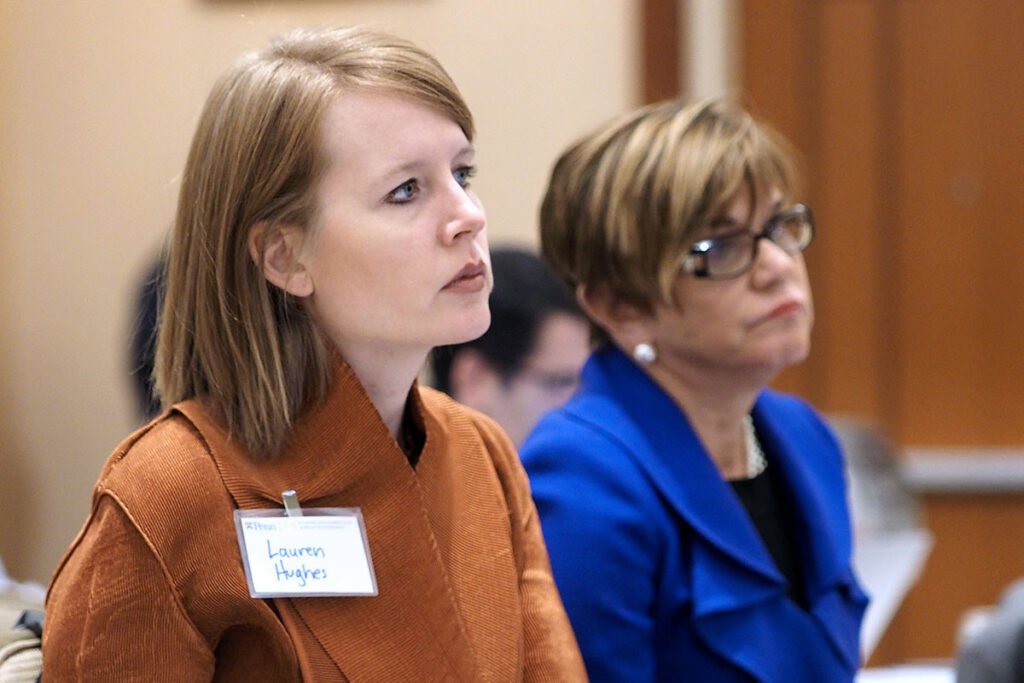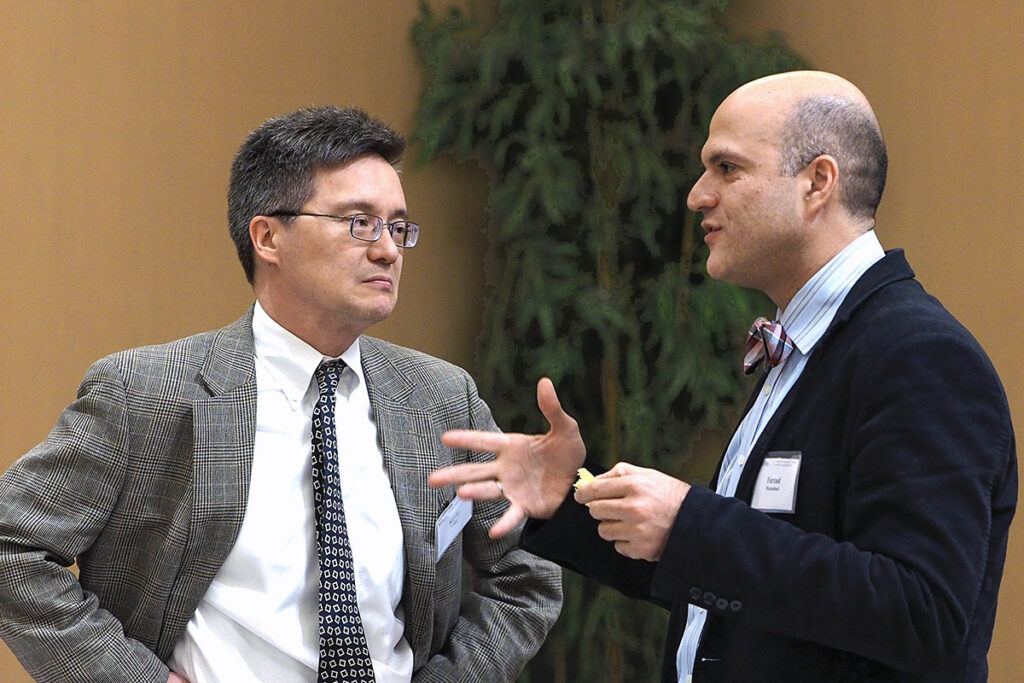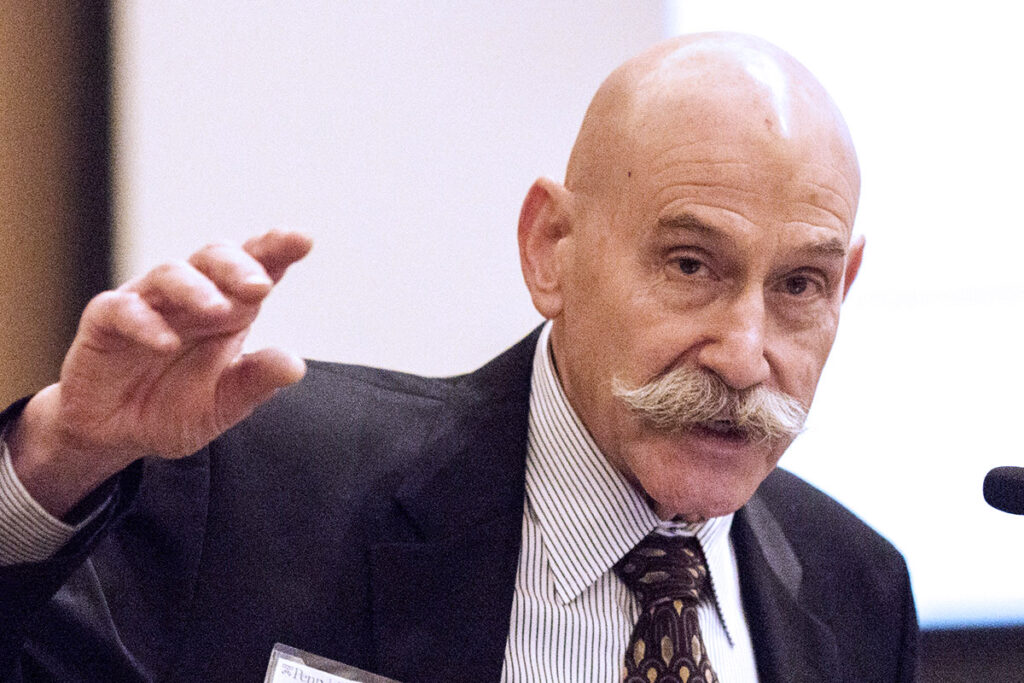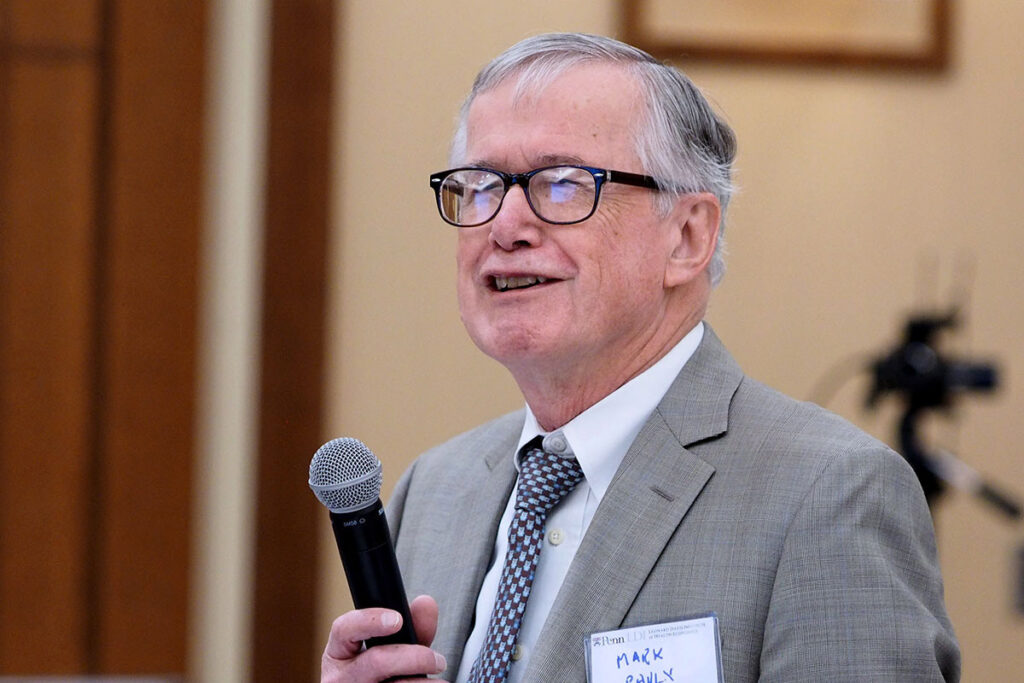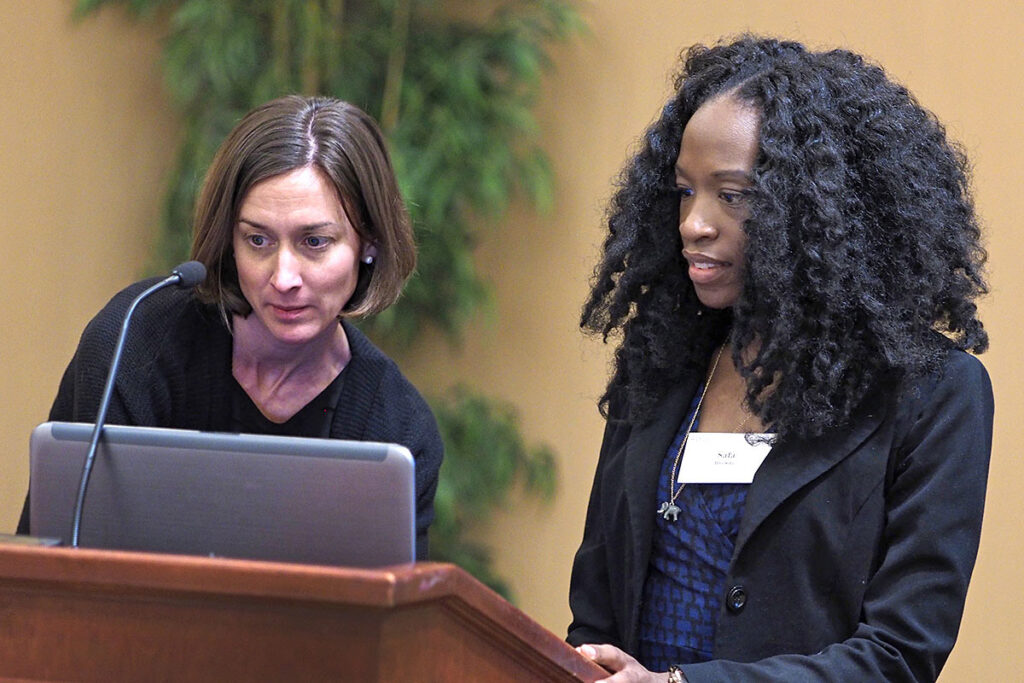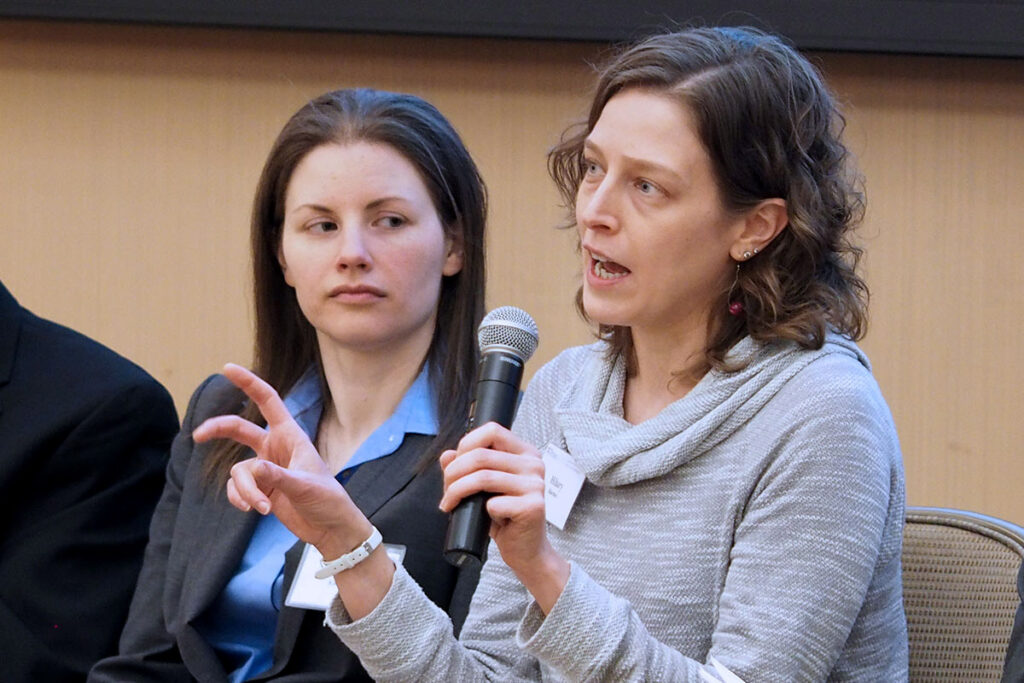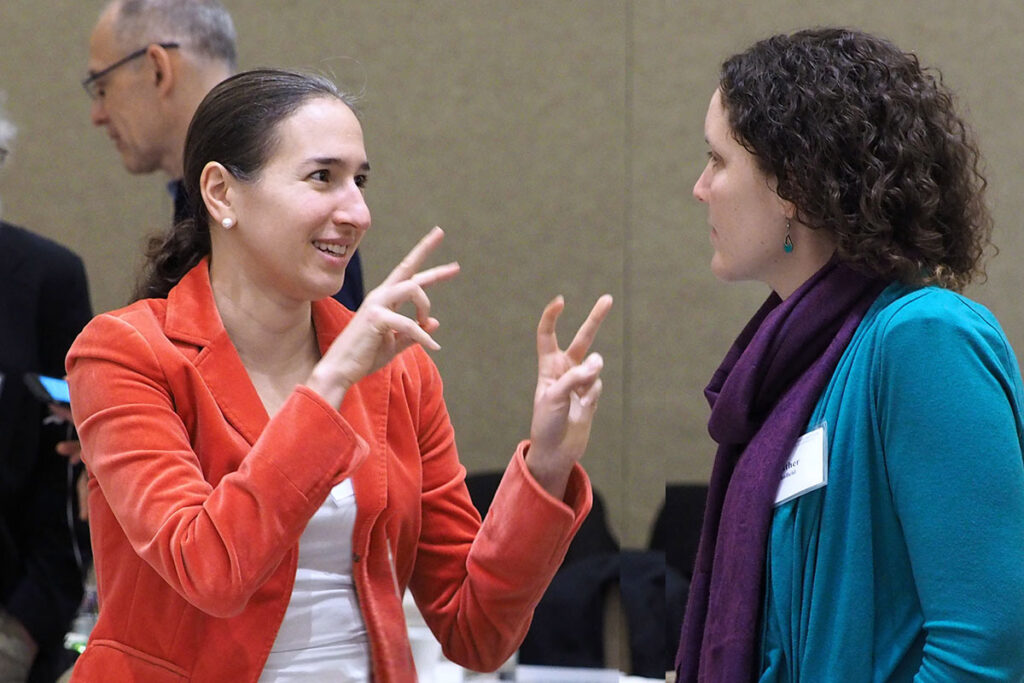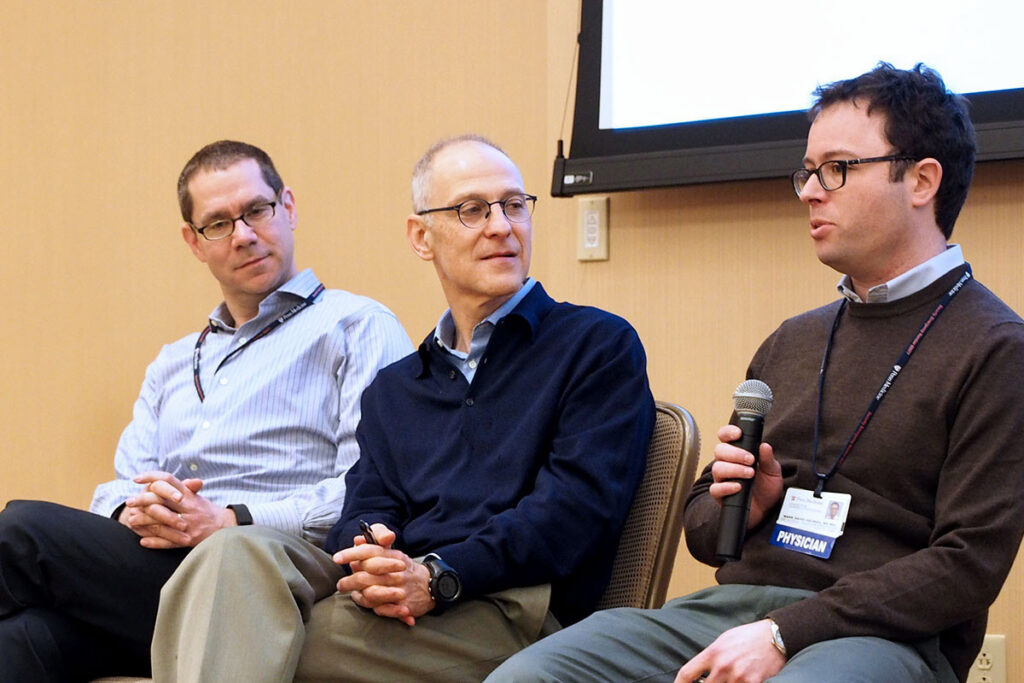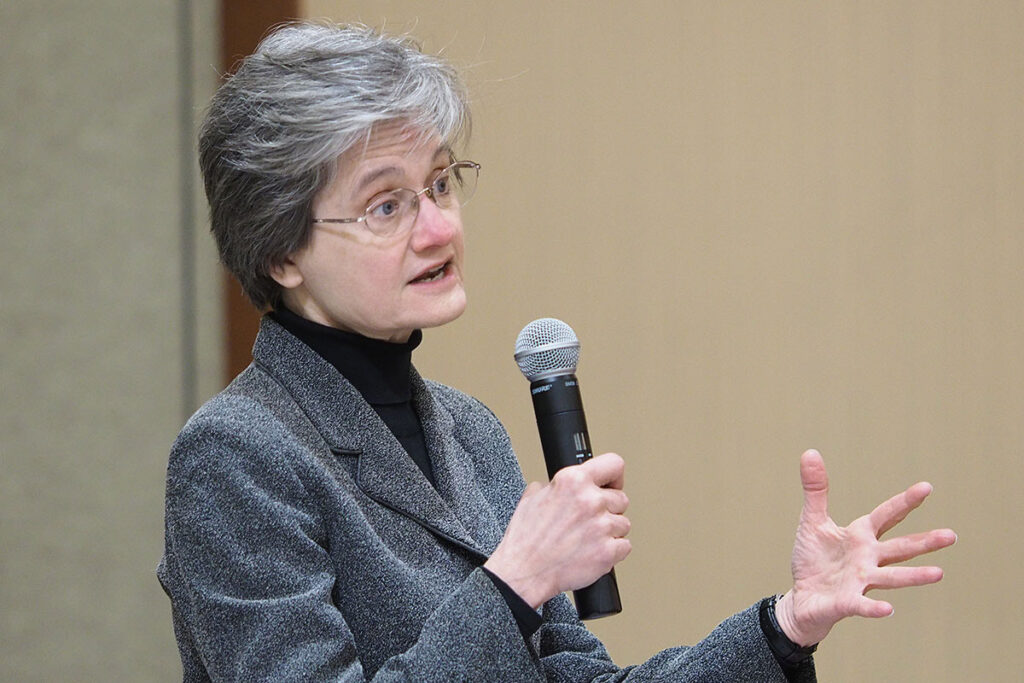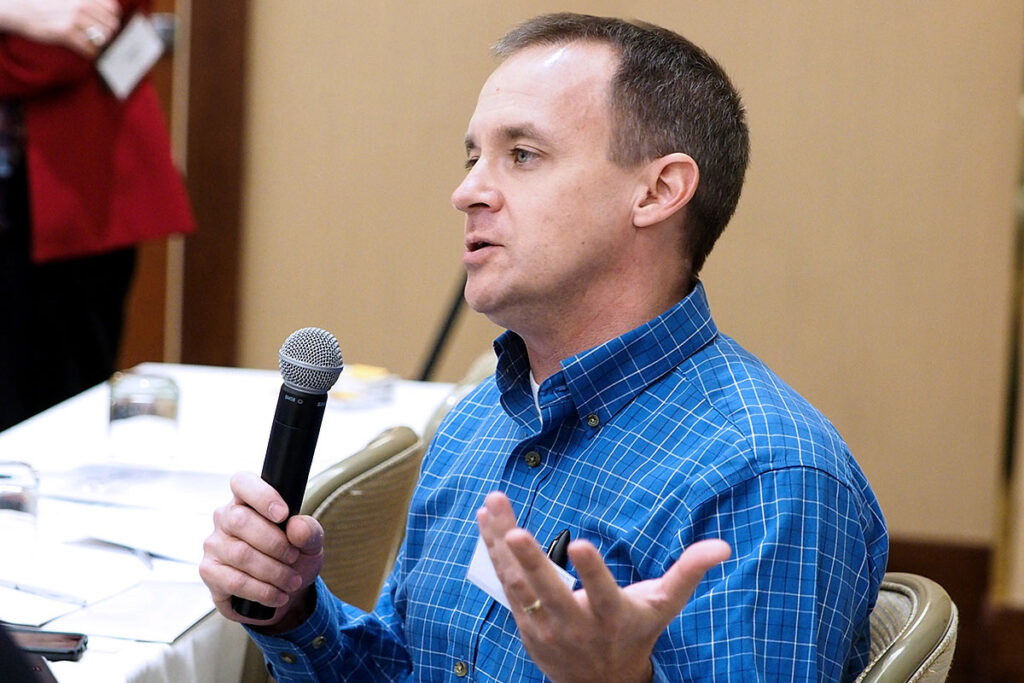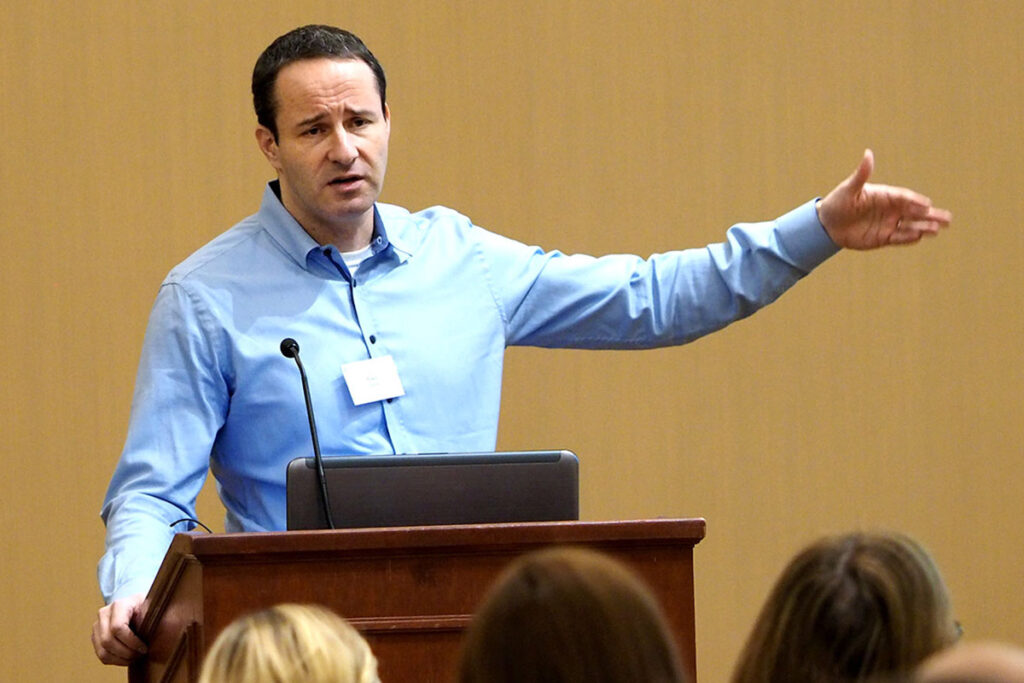News
Report From The 2016 Annual Penn Health Policy Retreat
90 Top Health Services Researchers Review the Field’s Latest Trends and Findings
The fifth annual University of Pennsylvania Health Policy Retreat again brought together 90 of the school’s top health services researchers. Designed to foster networking and collaboration, the one-day event featured speakers from Penn’s Perelman School of Medicine, The Wharton School, Annenberg, Nursing and Arts & Sciences, Children’s Hospital of Philadelphia, and the VA Medical Center. Audience members came from a variety of academic organizations ranging from the Penn Medicine Center for Health Care Innovation and the Nursing School’s Center for Health Outcomes and Policy Research to Wharton’s Health Care Management Department and the Center for Clinical Epidemiology and Biostatistics. Shown above at the podium is Dan Hopkins, PhD, an Associate Professor in the Department of Political Science at the School of Arts & Sciences speaking about the dynamics of increasing enrollment on the health insurance marketplaces or “exchanges.”
Karen Murphy, RN, PhD, Pennsylvania Secretary of Health (above, left) chats with Dan Polsky, PhD, MPP, Executive Director, Leonard Davis Institute of Health Economics (LDI). In his afternoon keynote, former National Coordinator for Health Information Technology, Farzad Mostashari, MD, ScM, (above, right) discussed the challenges faced by primary care physicians who are trying to transform their practices into ACOs.
In the foreground (above, left) is Nathan Westrup, MBA, LDI Associate Director of External Relations. Throughout the six-hour gathering, the audience heard 24 researchers present synopses of their latest work. In between sessions (above, right) Ezekiel Emanuel, PhD, MD,MSc, Penn Vice Provost for Global Initiatives and Chair of the Department of Medical Ethics and Health Policy, moderated question and answer periods with the speakers.
Bruce Kinosian, MD, Associate Professor of Medicine (above, left) who presented on the pilot Independence at Home programs that bested pilot ACOs in reducing costs for the care of medicare patients with two more more chronic conditions discussed his work with Ezekiel Emanuel. Above, right, Raina Merchant, MD, MS, Assistant Professor of Emergency Medicine and Director of the Penn Social Media and Health Innovation Lab takes a tea break after her presentation. She explained the new four-year, $5 million grant Penn received to explore new ways that big data can be used to improve health care across Pennsylvania. The goal is to develop new predictive analytic capabilities relevant to population health.
Zachary Meisel, MD, MPH, MSHP, (above, left) Assistant Professor of Emergency Medicine detailed how Penn, Cornell, Boston University and the University of Miami have formed an NIH-funded national research center for the study of the health economics of substance abuse as well as the treatment of Hepatitis C and HIV. It’s called the “Center for Health Economics Treatment Interventions for Substance Use Disorder, HCV and HIV,” or “CHERISH.” Above, right, Joanne Levy, MBA, MCP, LDI Deputy Director, mans the timer that maintained draconian control of presenter’s allotted podium time.
Entitled “Sex, Drugs and Social Media,” the presentation by Robin Stevens, PhD, MPH, Assistant Professor of Nursing at the Penn School of Nursing and Director of the Health Equity & Media Lab (above, left), synopsized her study of the daily “digital neighborhood” in Camden, N.J. There, she captured all the Facebook, Twitter and Instagram traffic of 60 Latino and African American teenagers for a year, analyzing how social media “digital neighborhoods” reproduced and continuously amplified the negative social interactions of that city’s violence-wracked physicial neighborhoods. Taking part in Q&A is Flaura Winston, MD, PhD, (above, right) Professor of Pediatrics and Director of the National Science Foundation Center for Child Injury Prevention Science at Children’s Hospital of Philadelphia (CHOP).
Shivan Mehta, MD, MBA, Assistant Professor of Medicine and Director of Operations of the Penn Medicine Center for Health Care Innovation (above, left) spoke about the four-year-old Center’s shift from supporting a small number of short term research projects to a larger number of longer term projects. This new Innovation Accelerator Program has had eight projects underway for four months. In the audience (above, right) are Amanda Starc, PhD, (foreground) and Ashley Swanson, PhD, both Assistant Professors of Health Care Management at the Wharton School.
Listening intently for ideas that may be of use to her office is (above, left) Lauren S. Hughes, MD, MPH, MSc, FAAFP, Deputy Secretary for Health Innovation at the Pennsylvania Department of Health. Directly next to her is PA Secretary of Health Karen Murphy. Above, right, Kevin Volpp, MD, PhD, Professor of both Medicine at the Philadelphia VA Center and Health Care Management at Wharton, chats with Farzad Mostashari. Mostashari’s new start-up company, Aledade, provides the back office IT services required to facilitate the transformation of a primary care practice into a full-blown Accountable Care Organization (ACO).
Five years after the widespread implementation of electronic health records (EHRs) began, Ross Koppel, PhD, FACMI, Adjunct Professor of Sociology at the School of Arts & Sciences and Principal Investigator of the Hospital Workplace Culture and Medication Error Study (above, left) presented a litany of ways the digital record systems have failed to meet their promise. Essentially, he said, EHRs’ usefulness has been thwarted by their lack of universal data and decision interface standards — a deficiency that has resulted in a 3,000-mile wide collection of isolated “towers of Babel.” Above, right, asking a question during Q&A is Mark Pauly, PhD, a Wharton School Professor of Health Care Management.
Assisted by LDI Research Coordinator Safa Browne (above, left), Catherine McDonald, PhD, RN, an affiliate at both the Center for Injury Research and Prevention and the Penn Injury Science Center, explained her newly launched research project aimed at creating a web-based intervention for teen driving. Motor vehicle crashes are the leading cause of teenage deaths in the U.S. Above, right, presenter Hilary Barnes, PhD, CRNP, post-doctoral research Fellow at the Nursing School’s Center for Health Outcomes and Policy Research detailed her study of state payment and practice regulations for nurse practitioners in clinical practice. She noted how state restrictions requiring NP collaboration with a primary care doctor limit the ability of NPs to practice in areas where primary care physicians are in critically short supply. Sitting next to her is Ann Kutney-Lee, PhD, RN, Assistant Professor at Penn’s School of Nursing.
Christina Roberto, PhD (above, left, red jacket), Assistant Professor of Medical Ethics and Health Policy, and principal investigator at Penn’s PEACH Lab, talks with Heather Schofield, PhD, Assistant Professor, Medical Ethics and Health Policy. Roberto’s earlier presentation was about her study of the impact of sugary drink health warning labels. She found that such on-bottle warnings can decrease parental intentions to buy such products. Above, right, presenters answer questions from the audience ( l to r): Justin Bekelman, MD, Associate Professor of Radiation Oncology at Penn’s Perelman School of Medicine; Ezekiel Emanuel; and Mark Neuman, MD, Assistant Professor of Anesthesiology and Critical Care at Perelman.
Engaged in Q&A sessions are Julie Sochalski, PhD, FAAN, RN (above, left), Associate Professor at Penn’s School of Nursing; and Peter Groeneveld, MD, MS (above, right), Associate Professor of Medicine and LDI Director of Research.
Guy David, PhD (above, left), Associate Professor of Health Care Management at the Wharton School, and LDI Director of Education, detailed an underway study that is using real-time insurance claims analysis to drive interventions aimed at reducing rehospitalizations of chronic heart failure patients. Above, right, Scott Harrington, PhD, Professor and Chair of Health Care Management Department at the Wharton School chats with Arnold Rosoff, JD, Professor Emeritus of Legal Studies & Health Care Management at Wharton.
